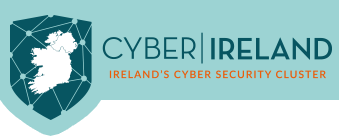- Knowledge of computer networking concepts and protocols, and network security methodologies.
- Knowledge of risk management processes (e.g., methods for assessing and mitigating risk).
- Knowledge of laws, regulations, policies, and ethics as they relate to cybersecurity and privacy.
- Knowledge of cybersecurity and privacy principles.
- Knowledge of cyber threats and vulnerabilities.
- Knowledge of specific operational impacts of cybersecurity lapses.
- Knowledge of information technology (IT) security principles and methods (e.g., firewalls, demilitarized zones, encryption).
- Knowledge of local area and wide area networking principles and concepts including bandwidth management.
- Knowledge of measures or indicators of system performance and availability.
- Knowledge of performance tuning tools and techniques.
- Knowledge of server and client operating systems.
- Knowledge of systems administration concepts.
- Knowledge of the enterprise information technology (IT) architecture.
- Knowledge of the type and frequency of routine hardware maintenance.
- Knowledge of Virtual Private Network (VPN) security.
- Knowledge of file system implementations (e.g., New Technology File System [NTFS], File Allocation Table [FAT], File Extension [EXT]).
- Knowledge of virtualization technologies and virtual machine development and maintenance.
- Knowledge of organizational information technology (IT) user security policies (e.g., account creation, password rules, access control).
- Knowledge of system administration, network, and operating system hardening techniques.
- Knowledge of network security architecture concepts including topology, protocols, components, and principles (e.g., application of defense-in-depth).
- Knowledge of Personally Identifiable Information (PII) data security standards.
- Knowledge of Payment Card Industry (PCI) data security standards.
- Knowledge of Personal Health Information (PHI) data security standards.
- Knowledge of transmission records (e.g., Bluetooth, Radio Frequency Identification (RFID), Infrared Networking (IR), Wireless Fidelity (Wi-Fi). paging, cellular, satellite dishes, Voice over Internet Protocol (VoIP)), and jamming techniques that enable transmission of undesirable information, or prevent installed systems from operating correctly.
- Knowledge of systems engineering theories, concepts, and methods.
- Knowledge of system/server diagnostic tools and fault identification techniques.
- Knowledge of operating system command-line tools.
- Knowledge of network protocols such as TCP/IP, Dynamic Host Configuration, Domain Name System (DNS), and directory services.
- Knowledge of principles and methods for integrating system components.
System Administrator
Responsible for setting up and maintaining a system or specific components of a system (e.g. for example, installing, configuring, and updating hardware and software; establishing and managing user accounts; overseeing or conducting backup and recovery tasks; implementing operational and technical security controls; and adhering to organizational security policies and procedures).
- Skill in configuring and optimizing software.
- Skill in diagnosing connectivity problems.
- Skill in maintaining directory services. (e.g., Microsoft Active Directory, LDAP, etc.).
- Skill in using virtual machines. (e.g., Microsoft Hyper-V, VMWare vSphere, Citrix XenDesktop/Server, Amazon Elastic Compute Cloud, etc.).
- Skill in configuring and utilizing software-based computer protection tools (e.g., software firewalls, antivirus software, anti-spyware).
- Skill in interfacing with customers.
- Skill in conducting system/server planning, management, and maintenance.
- Skill in correcting physical and technical problems that impact system/server performance.
- Skill in troubleshooting failed system components (i.e., servers)
- Skill in identifying and anticipating system/server performance, availability, capacity, or configuration problems.
- Skill in installing system and component upgrades. (i.e., servers, appliances, network devices).
- Skill in monitoring and optimizing system/server performance.
- Skill in recovering failed systems/servers. (e.g., recovery software, failover clusters, replication, etc.).
- Skill in operating system administration. (e.g., account maintenance, data backups, maintain system performance, install and configure new hardware/software).
- Ability to accurately define incidents, problems, and events in the trouble ticketing system.
- Ability to apply an organization's goals and objectives to develop and maintain architecture.
- Ability to develop, update, and/or maintain standard operating procedures (SOPs).
- Ability to operate common network tools (e.g., ping, traceroute, nslookup).
- Ability to monitor measures or indicators of system performance and availability.
- Ability to collaborate effectively with others.
- Ability to function effectively in a dynamic, fast-paced environment.
- Ability to apply cybersecurity and privacy principles to organizational requirements (relevant to confidentiality, integrity, availability, authentication, non-repudiation).
- Ability to establish and maintain automated security control assessments
- Conduct functional and connectivity testing to ensure continuing operability.
- Design group policies and access control lists to ensure compatibility with organizational standards, business rules, and needs.
- Develop and document systems administration standard operating procedures.
- Maintain baseline system security according to organizational policies.
- Manage accounts, network rights, and access to systems and equipment.
- Plan, execute, and verify data redundancy and system recovery procedures.
- Provide ongoing optimization and problem-solving support.
- Install, update, and troubleshoot systems/servers.
- Check system hardware availability, functionality, integrity, and efficiency.
- Conduct periodic system maintenance including cleaning (both physically and electronically), disk checks, routine reboots, data dumps, and testing.
- Comply with organization systems administration standard operating procedures.
- Implement and enforce local network usage policies and procedures.
- Manage system/server resources including performance, capacity, availability, serviceability, and recoverability.
- Monitor and maintain system/server configuration.
- Oversee installation, implementation, configuration, and support of system components.
- Diagnose faulty system/server hardware.
- Perform repairs on faulty system/server hardware.
- Troubleshoot hardware/software interface and interoperability problems.
